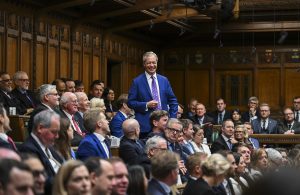When the UK left the European Union in January 2020, the UK regained the ability to sign its own trade agreements. Since Brexit, the UK has signed deals with Australia, New Zealand and the Comprehensive and Progressive Agreement for Trans-Pacific Partnership (CPTPP), an Asia-Pacific trade bloc of 11 countries. Parliament has been scrutinising the terms of the UK’s accession to the CPTPP since the deal was signed in July 2023, and substantial debate has been aroused. A similar situation occurred with the UK’s trade deal with Australia as it was negotiated and ratified through 2022 and 2023. Economists and politicians are confident that reducing barriers to trade is beneficial for a country’s economy,[1] which leaves the question of why, in practice, are trade deals often so controversial?
Effects on businesses
The first difficulty is that trade deals, much like most economic policies, have a disproportionate impact on some sectors. While a trade deal, such as CPTPP, may benefit the economy as a whole, increasing GDP and reducing prices for consumers, some sectors will be left worse off. In the case of the Australia-UK Free Trade Agreement, the agricultural sector was particularly worried about the impact. The Government’s impact assessment projects that the Australia-UK Free Trade Deal will increase GDP by £2.3 billion in the long run[2]. However, the National Farmers’ union criticised the deal for opening up the UK to Australian produce, whether or not it was produced to the same standards required of UK farmers.[3] Similarly, the House of Lords International Agreements Committee, in their scrutiny of the CPTPP, noted that animal welfare standards were not protected in the deal, and this could lead to lower production costs undercutting UK farmers.[4] This is particularly pertinent as the overall benefit of these two trade deals to the UK economy is relatively small, with the Australia trade deal, for example, only projected to be valued at a 0.08% increase in GDP.[5]
Political issues
There are also several political issues at play. Several stakeholders criticised the Australia FTA as being a poor deal for the UK. George Eustice MP, who as Secretary of State for Environment, Food and Rural Affairs played a role in the trade negotiations, criticised the deal, saying that the UK ‘gave away far too much for far too little in return.’[6] There is some concern that the rush to conclude trade agreements in the aftermath of Brexit has led to deals that are good for the British economy, but less beneficial than they could have been. Eustice in particular accused Liz Truss, then International Trade Secretary, of setting an ‘arbitrary target’ to conclude the bulk of the deal by the 2021 G7 Summit, which put the UK on the ‘back foot’.
Non-economic factors
There is also concern that the provisions of trade deals, including the CPTPP, may have negative effects on non-economic areas of policy. In particular, the International Agreements Committee raised a concern that the Investor-State Dispute Settlement measures in the CPTPP may result in regulations in areas such as health, equality and labour relations being challenged in the courts if they negatively affect foreign direct investment.[7] Controversy over trade deals may therefore reflect the public’s or politicians’ desire to achieve other priorities, aside from growing the economy.
BREVIA CONSULTING PROVIDES STRAIGHTFORWARD POLITICAL ADVICE AND SUPPORT TO BUSINESSES AND ORGANISATIONS
Discover how Brevia can help you and your organisation by contacting the Brevia Team on 020 7091 1650 or contact@brevia.co.uk
[1] International Monetary Fund, World trade can still drive prosperity, June 2023, link
[2] Department for International Trade, Impact assessment of the Free Trade Agreement between the United Kingdom of Great Britain and Northern Ireland and Australia, 16 December 2021, p.5, link
[3] NFU, TAC report on Australia trade deal – NFU response, 13 May 2022, link
[4] International Agreements Committee, Scrutiny of international agreements: UK accession to the Comprehensive Progressive Trans-Pacific Partnership, 27 February 2024, p.12, link
[5] Department for International Trade, Impact assessment of the Free Trade Agreement between the United Kingdom of Great Britain and Northern Ireland and Australia, 16 December 2021, p.5, link
[6] George Eustice MP, Hansard, 14 November 2022, Col. 424, link
[7] International Agreements Committee, Scrutiny of international agreements: UK accession to the Comprehensive Progressive Trans-Pacific Partnership, 27 February 2024, p.18, link



